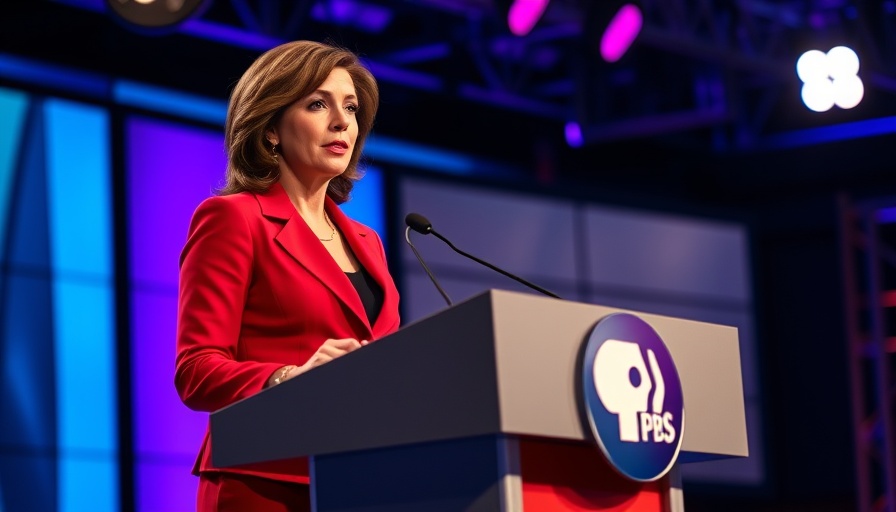
Public Broadcasting Faces Unprecedented Challenges Amid Funding Cuts
As public broadcasting outlets across the United States grapple with a significant reduction in federal funding, the implications for cultural programming are becoming starkly apparent. In a time when community connection and information dissemination are crucial, the ramifications of a $1.1 billion cut to the Corporation for Public Broadcasting are being felt deeply.
Financial Strain on Local Stations
Take, for instance, PBS affiliate KSPS in Spokane, Washington. The station was already dependent on a sizable number of contributions from Canadian supporters. The recent political climate has seen many of these supporters withdraw their financial backing, disheartened by President Trump's remarks about Canada. As Skyler Reep, the station's interim general manager, pointed out, this sudden loss of support—approximately 18% of its overall budget—demonstrates the ripple effect of national politics on local programming.
Nationwide, the situation is similar: as federal funds vanish, stations are urgently appealing for donations. In Wilmington, North Carolina, public radio station WHQR exceeded its fundraising expectations, managing to raise over $200,000 to plug a budget gap. The loyalty of its listeners, many of whom rely on it for essential news about their evolving community, played a vital role in this recovery.
Community Response: The Heart of Public Broadcasting
The support seen in Wilmington echoes a broader sentiment among listeners who recognize the intrinsic value of local public media. Hawaii Public Radio, facing a budget deficit of $525,000, successfully raised $650,000 in an emergency fundraising drive. This outcome is not just a financial win; it’s a validation of the station’s importance to the community, especially in the wake of significant events like the recent wildfires that affected Maui.
The Long-term Implications of Reduced Funding
While immediate fundraising efforts display the resilience of public broadcasting, the long-term implications of reduced federal funding may threaten the diversity of voices in media. With many politicians voicing early opposition to the perceived bias within public broadcasting, the potential for an even smaller budget raises questions about the kind of programming that will be available in the future.
Moreover, the conversation around funding cuts has the potential to alienate listeners who feel their unique perspectives are underrepresented. Local stations have historically been a platform for varied voices, showcasing everything from local art to niche music genres. As revenues dwindle, the risk is that these invaluable stories may go unheard, further marginalizing segments of the population.
A Cultural Crisis: What’s at Stake?
Beyond just news and entertainment, public broadcasting serves as a cultural backbone, providing not just information but also a sense of community. For families and cultural enthusiasts, the reliance on these outlets is palpable. They rely on programming that entertains, educates, and promotes local events—everything from concert listings to family-friendly shows. With budget cuts threatening this programming, communities face the potential loss of rich, accessible, and meaningful cultural engagement.
Finding Solutions Amid the Uncertainty
Solutions to this funding crisis are not immediately apparent. PBS and NPR are searching for innovative ways to create sustainable funding models while staying responsive to their communities. Many are exploring partnerships and collaboration with local organizations to enhance programming while securing necessary financial support. The experience from stations that have successfully weathered these storms provides a glimmer of hope, showcasing the power of community in sustaining cultural institutions.
Your Role in Supporting Local Media
Amid these funding cuts, the participation of local audiences becomes even more crucial. Engaging with public broadcasters by donating or subscribing can provide much-needed stability as these organizations navigate the stormy waters ahead. If you value local events, cultural programming, and unbiased reporting, supporting your local stations can significantly impact their ability to thrive amid adversity.
As you witness your local media sources adapting to these challenges, consider how you can contribute—remember, the survival of public broadcasting depends not just on federal support, but on the engagement and passion of communities.
 Add Row
Add Row  Add
Add 




Write A Comment